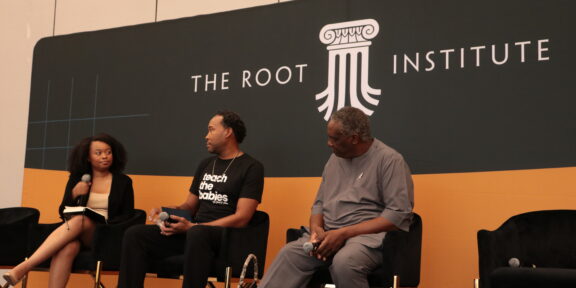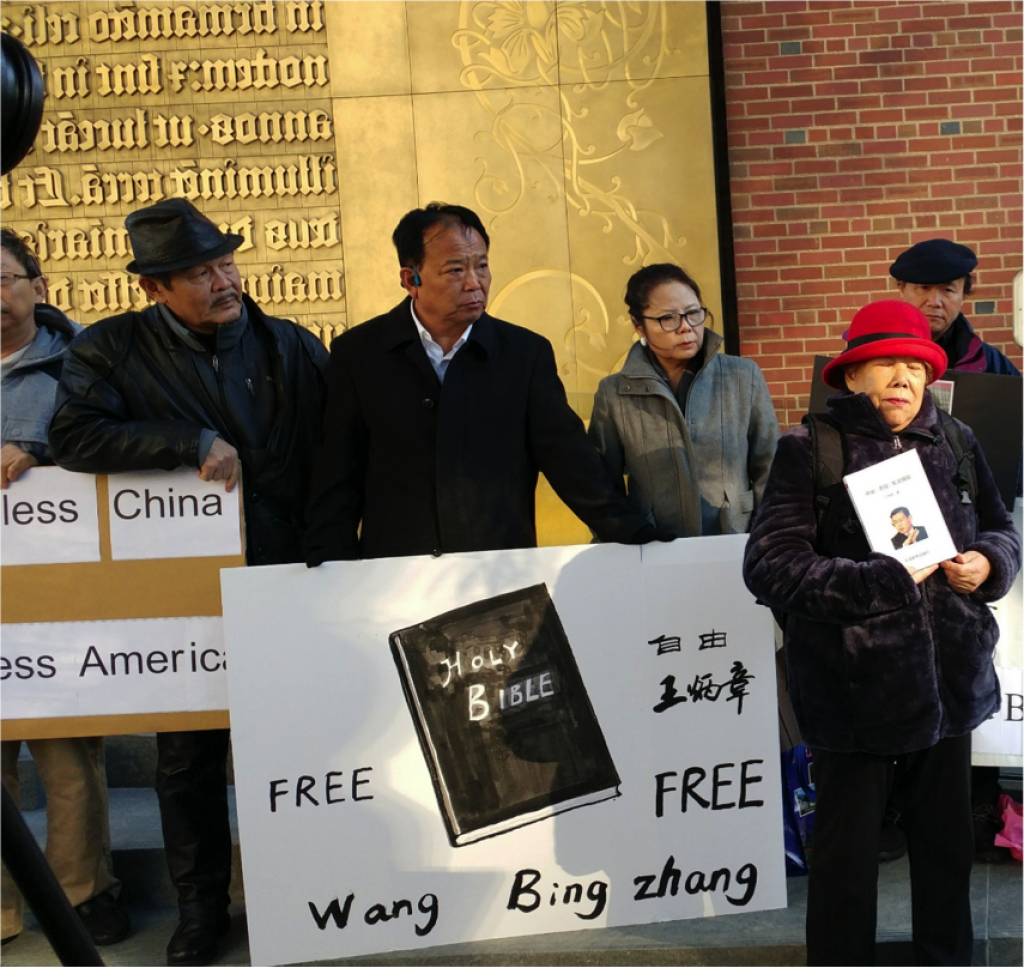Dr. Wayne Frederick Eases Campus Anxiety
Howard University’s Interim President Dr. Wayne Frederick walked into the College of Medicine auditorium to loud applause from the faculty and staff of the institution he took over on Oct. 1. It was the morning ofOct. 16, and Dr. Frederick planned to spend the day calming the fears of faculty, staff, students and alumni who have grown anxious about the state of affairs at Howard and the abrupt retirement of President Sidney Ribeau.
Dr. Frederick, a surgical oncologist who previously served as the university’s provost and chief academic officer and holds three degrees from Howard, spoke to the community about Howard’s financial state, the rumored sale of Howard University Hospital, student and alumni relations, the effects of the federal government shutdown, plans to search for a new provost and chief financial officer and fundraising efforts.
This change in the university’s leadership comes after months of public scrutiny and internal differences that began with the leak of Board of Trustees member Renee Higginbotham-Brooks’s letter in late April. Her letter, which received national attention, included language concerning doubts about the future of Howard University and called for a vote of no confidence in President Ribeau and Board Chairman Addison Barry Rand.
Following a tense three-day meeting of the Board of Trustees, President Ribeau emailed the Howard community a brief letter announcing that he would retire as of Dec. 31
Ribeau, who has been president five years, left a month after Howard’s ranking dropped 22 places in the U.S. News and World Report annual ratings of higher education institutions and the univeristy’s credit rating was downgraded Moody’s Investor’s Service.
During Dr. Frederick’s address to faculty and staff, he acknowledged that Moody’s action came about because of concerns over the financial condition of the hospital, university management, student enrollment and federal budget cuts. “The negative outlook warrants caution,” Dr. Frederick said.
“With the publication of Howard’s recent US News and Report rankings, we are evaluating our process as well as the context for reporting information on the university’s key performance indicators,” he said.
In August, the university began a search for a potential buyer or major partner for Howard University Hospital, which lost $21 million in the 2012 fiscal year and saw a 12% decrease in patient admissions. It is not unusual for an academic hospital to have a major partner, and Dr. Frederick said he did not “see any direct negative impact” in regards to the search for partners. The hospital is one of the nation’s few entirely owned and operated by its namesake university. It is the only such institution at an historically black college or university. Concern has been raised that the potential sale would hurt the hospital’s standing as a teaching facility. Howard University’s College of Medicine produces more African-American physicians than any other institution and boasts the only College of Dentistry in Washington, D.C.
Dr. Frederick said that despite financial troubles and any future partnerships, Howard Hospital’s mission for teaching and treating the District’s economically stable population is important and vital. “The structure will have to include an academic affiliation so that we can train future doctors,” he said.”Health Science’s service excellence initiatives have been augmented this year to improve patient satisfaction and quality scores, which are still at unacceptable levels”
The hospital also receives a portion of the university’s federal appropriation, which has been a subject of unease in the wake of the 10 percent across the board federal spending cuts and the government shutdown. Dr. Frederick made it clear that the battle in Congress had a direct affect on operations.
“The government shutdown[impacted]cash flow at about $7 million per week including a $55 million impact from the delayed appropriation payment,” he said.
Despite the worried atmosphere on Howard’s campus, Dr. Frederick championed the Howard community’s recent achievements and goals. Upon the approval of a contractor, the Undergraduate Library is slated to reopen in 14 months, and the construction of the new dormitories and the Interdisciplinary Research Building are on schedule.
He hopes to raise the current freshman retention rate from 83 percent to 95 percent and the four-year graduation rate from 63 percent to 80 percent. Mentioning his own fond experiences at Howard, he stressed the importance of alumni-student relations and working to raise the extremely low percentage of alumni contributions: He is proposing a 5 percent tuition-return incentive upon graduating in four years and alumni hosting interviews for prospective students. Both ideas garnished interest and applause from the audiences.
“I am certain that our determination to improve on-time graduation through revised curricula for all undergraduates will result in the meaningful outcomes that we are committed to ensuring that our students achieve,” Dr. Frederick said.
Shana Ervin, the president of the Howard University Alumni Club of Greater Washington, said she was encouraged by what Dr. Frederick had to say. “It is important for the local DC club to have a great working relationship with Howard University,” Ervin said. “If we can establish that through this current interim president, hopefully that will set the groundwork for us to have a continued relationship with whomever the permanent president will be.”
Howard University Faculty Senate Chairman Lorenzo Morris said he is hopeful that Dr. Frederick will continue to look to institutional development and fundraising.
“We are concerned that things be stable and that the teaching environment be solid,” Morris said, “but we also want to add to the support for research in a variety of areas both STEM, and cultural and social areas so that faculty can do the kinds of research we want to attract both students and funding to the university.”
Anthony Miller, Howard Univeristy Student Association president, which hosted the Town Hall Meeting for students, hopes to build “an open and transparent relationship” with Dr. Frederick. “We share our ideas and the student’s concerns and he specifically addresses them to the student body,” Morris said of the interim president. “He shows that he is serious about solving a lot of them. He expressed his understanding of the valid concerns and he’s listening to us.”






